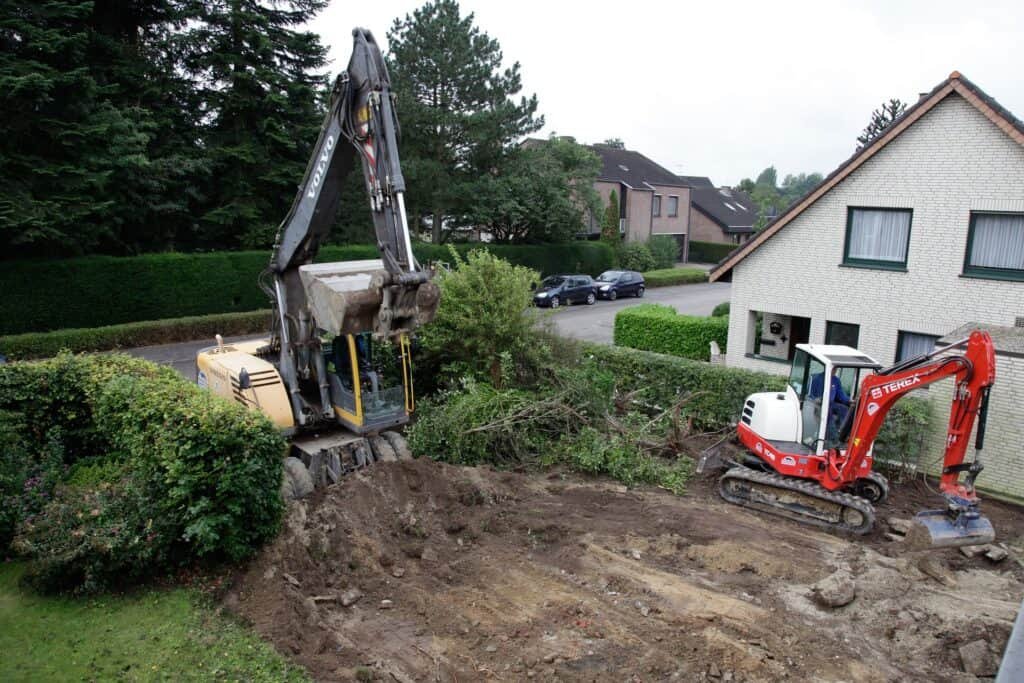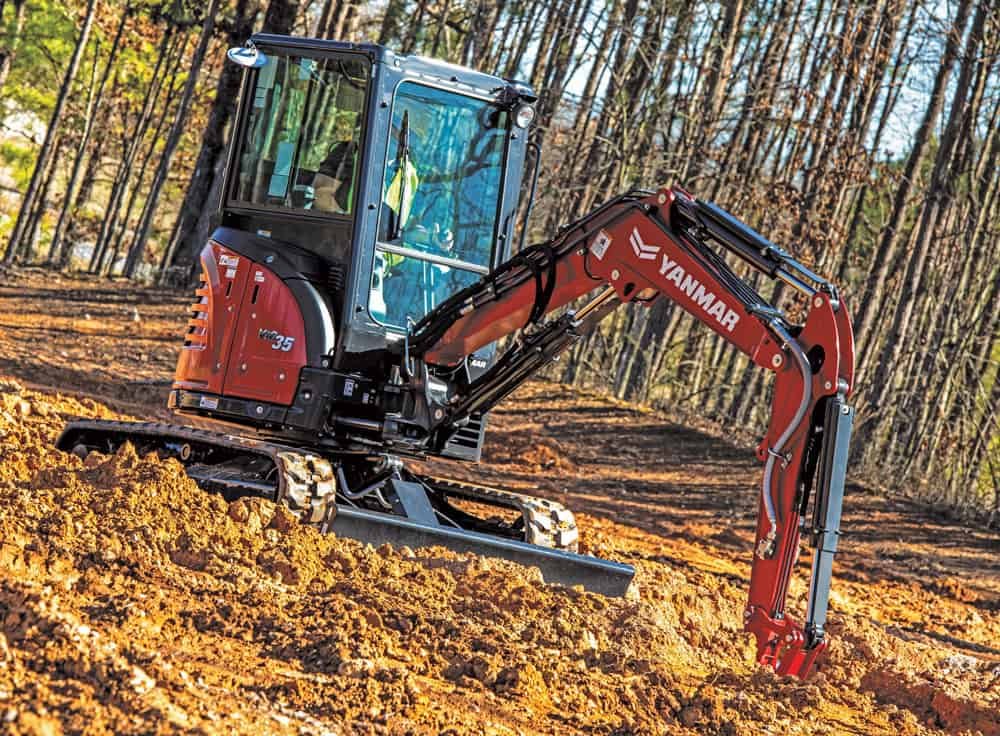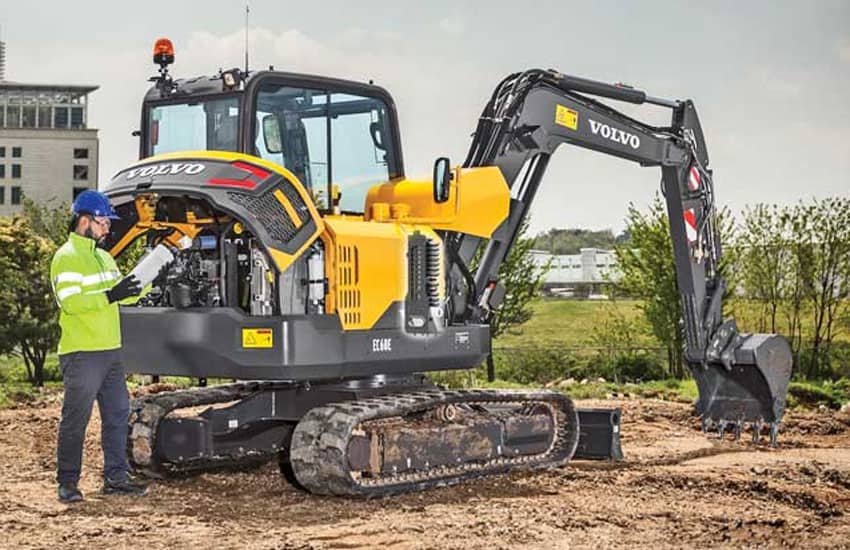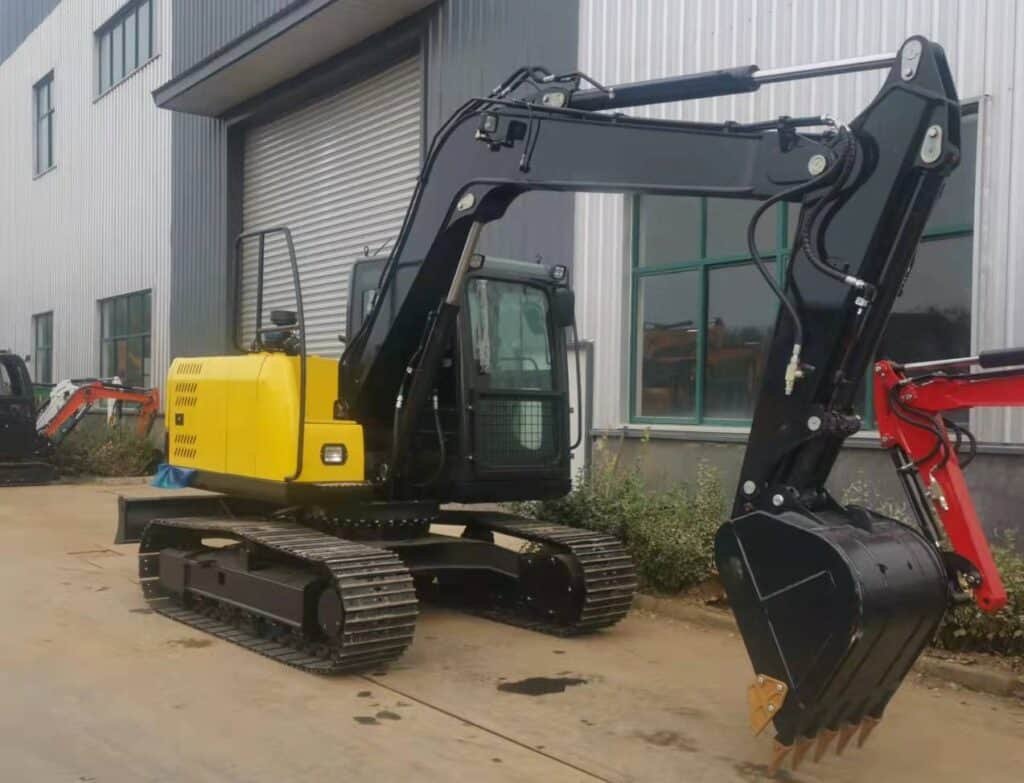Hydraulic excavators are versatile construction machines widely used in various industries, such as construction, mining, forestry, and demolition. They are designed to perform a range of tasks, including digging trenches, excavating foundations, lifting heavy objects, and demolishing structures. Hydraulic excavators come in different types and sizes, each with its own unique features and applications. Let’s explore some of the most common types of hydraulic excavators and their respective uses:

- Crawler Excavators: Crawler excavators, also known as track excavators, are equipped with crawler tracks instead of wheels, enabling smooth movement on rough terrain. These excavators provide excellent stability and are ideal for heavy-duty operations such as deep trenching, mining, and large-scale construction projects. They offer a wide range of bucket sizes and attachments, allowing for versatile operations, including digging trenches, excavating foundations, and undertaking heavy-duty construction tasks.
- Wheeled Excavators: Wheeled excavators are equipped with rubber tires, offering increased mobility and maneuverability on paved surfaces. They are commonly utilized in urban construction projects, road maintenance, and utility work that demands speed and agility. These excavators provide better mobility and faster travel speeds on roads and paved surfaces compared to their tracked counterparts. Their enhanced maneuverability makes them particularly suitable for urban construction sites or areas with space constraints. Wheeled excavators find widespread use in road construction and maintenance, utility work, and urban development projects.
- Mini Excavators: Mini excavators, also known as compact excavators or mini diggers, are designed for tasks in tight spaces or areas with restricted access. These smaller-sized machines are highly versatile and can be easily transported to different job sites. They weigh less than six tons and find application in various tasks, including landscaping, residential construction, digging trenches for utility lines, and small-scale excavation projects in confined spaces.
- Long-Reach Excavators: Long-reach excavators feature extended arms and booms, enabling them to reach greater distances compared to standard excavators. These excavators are commonly employed in dredging, riverbank maintenance, and deep excavation projects that require extended reach. They are particularly useful when the machine needs to be stationed further away from the excavation area, such as in work involving bodies of water.

- Dragline Excavators: Dragline excavators are massive machines primarily used in mining and large-scale earthmoving operations. They feature a large bucket suspended from a boom and can remove vast amounts of material in a single pass. Dragline excavators are particularly effective in removing overburden and extracting minerals. Dragline excavators are massive machines primarily used in large-scale mining and earthmoving operations. They consist of a large bucket suspended from a boom and are capable of removing significant amounts of material in a single pass. Dragline excavators are particularly effective in removing overburden (surface layer) in mining operations and extracting minerals such as coal and sand.
- Amphibious Excavators: Amphibious excavators are specially designed for operating in wetland environments, including swamps, marshes, and shallow water bodies. They feature floating pontoons or tracks that provide flotation and stability, enabling traversal of soft and unstable terrains. These excavators are commonly utilized for tasks such as dredging, land reclamation, environmental restoration, and shoreline maintenance projects. They excel in wetland operations, offering the ability to work on water or marshy surfaces with the support of their floating pontoons or tracks.
- Demolition Excavators: Demolition excavators are equipped with specialized attachments, including hydraulic breakers, shears, grapples, and crushers, for the efficient dismantling of structures. They are commonly used in demolition projects to tear down buildings, remove concrete, and handle debris with precision and control. These excavators excel in the efficient dismantling of structures, utilizing their specialized attachments to handle various tasks involved in demolition projects.
- Vacuum Excavators: Vacuum excavators, also known as hydro excavation trucks, utilize high-pressure water jets and a vacuum system to precisely excavate and remove soil and debris. They are commonly employed in sensitive excavation projects where avoiding damage to underground utilities is crucial. These excavators effectively break up soil using high-pressure water jets and then use the vacuum system to remove the excavated material. They are highly effective for precision digging around utility lines, pipeline maintenance, and archaeological excavations, where precision and protection of underground utilities are of utmost importance.

Each type of hydraulic excavator serves a specific purpose and has its own advantages in terms of efficiency, versatility, and adaptability to different working conditions. Understanding the various types and their applications can help industries choose the most suitable excavator for their specific project requirements.
Advantages of Hydraulic excavators
They offer several benefits that contribute to their widespread use in various industries. Here are some of the key advantages:
- Versatility: Hydraulic excavators are highly versatile machines that can be equipped with a wide range of attachments, such as buckets, breakers, grapples, shears, and augers. This versatility allows them to perform various tasks, including digging, lifting, loading, demolishing, and more. The ability to switch attachments quickly enhances their efficiency and adaptability on different job sites.
- Powerful Performance: Hydraulic excavators are known for their powerful digging capabilities. The hydraulic system provides high levels of force and precision, enabling efficient and controlled excavation. They can handle different types of soils and materials, including rocks, gravel, clay, and concrete, with ease.
- Enhanced Efficiency: Hydraulic excavators are designed for optimal efficiency in terms of time and fuel consumption. Their advanced hydraulic systems allow for smooth and precise operations, minimizing the effort required to complete tasks. Additionally, features like quick-couplers for attachments and advanced control systems contribute to faster and more efficient work.

- Excellent Reach and Digging Depth: Excavators are known for their ability to reach significant heights and depths. With extended booms and arms, they can access hard-to-reach areas and perform deep excavations. This makes them suitable for a wide range of applications, including building foundations, trenching, and mining operations.
- Enhanced Safety: Hydraulic excavators are equipped with safety features to protect operators and ensure safe operations. These may include features like ROPS (Roll-Over Protective Structure), FOPS (Falling Object Protective Structure), rearview cameras, and alarms. The precise control offered by hydraulic systems also contributes to safe and controlled digging operations.
- Mobility and Maneuverability: Excavators are available in various sizes, from compact mini excavators to larger models. This range allows them to operate in diverse environments, including confined spaces and rugged terrains. Some models are equipped with tracks or wheels, providing excellent mobility and maneuverability on different surfaces.
- Remote Control Capabilities: Some modern hydraulic excavators are equipped with remote control systems, allowing operators to control the machine from a safe distance. This feature is particularly beneficial in hazardous or hard-to-reach areas, enhancing safety and precision.
- Longevity and Durability: Hydraulic excavators are designed to withstand demanding work conditions and are built with durable materials. Regular maintenance and proper care can significantly extend their lifespan, making them a long-term investment for businesses.

These benefits contribute to the popularity and extensive use of hydraulic excavators across industries such as construction, mining, forestry, utilities, and more. If you want to know more, please contact us.

